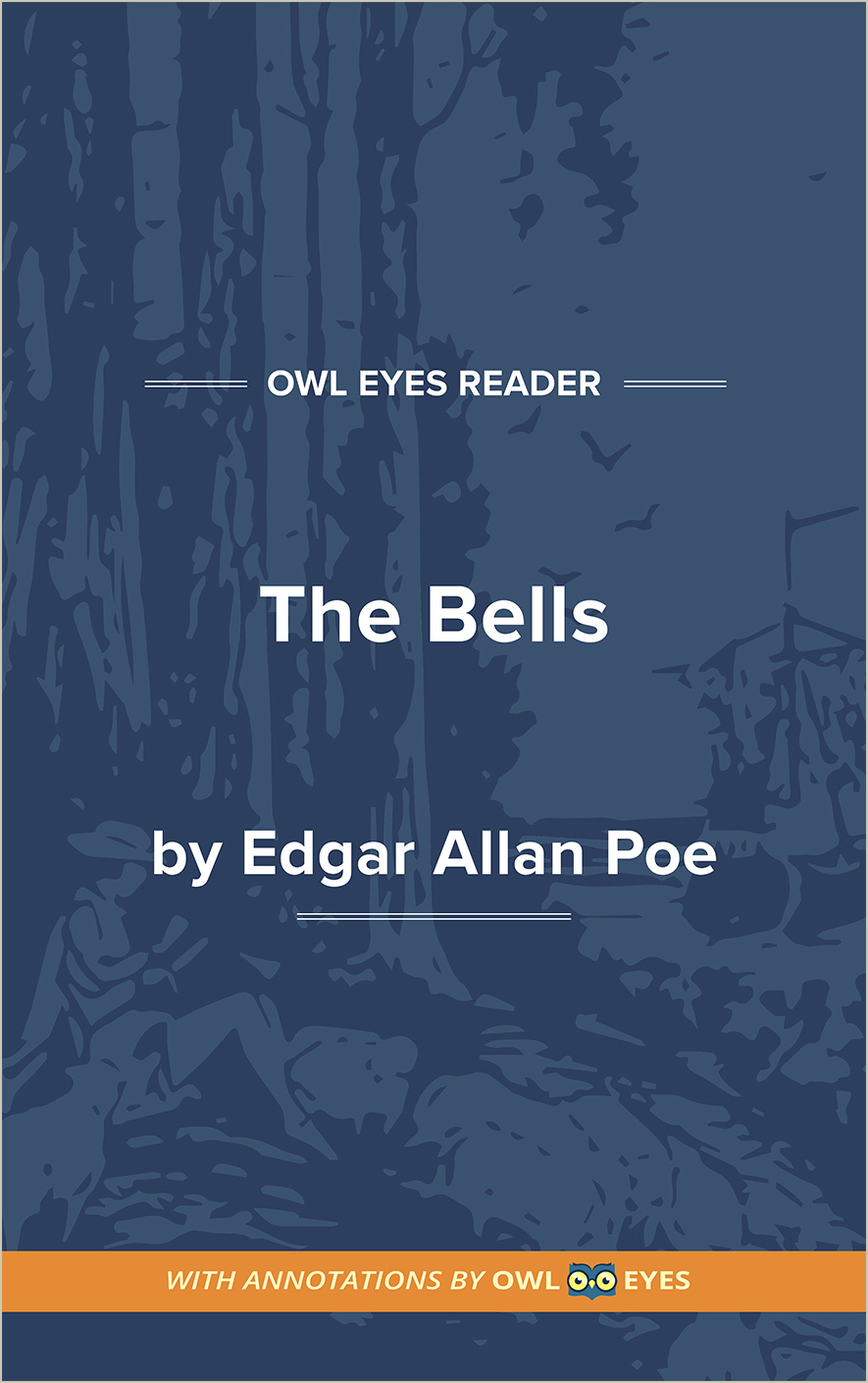Analysis Pages
Vocabulary in The Bells
Vocabulary Examples in The Bells:
The Bells
🔒"As he knells, knells, knells, ..." See in text (The Bells)
"the paean..." See in text (The Bells)
"They are Ghouls: ..." See in text (The Bells)
"monody..." See in text (The Bells)
"Brazen bells!..." See in text (The Bells)
"alarum..." See in text (The Bells)
"euphony..." See in text (The Bells)
"the tintinnabulation..." See in text (The Bells)
"Runic rhyme..." See in text (The Bells)
"the sledges..." See in text (The Bells)

